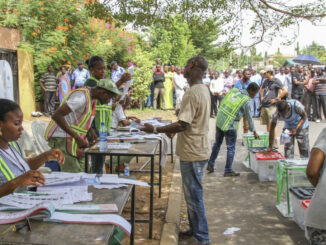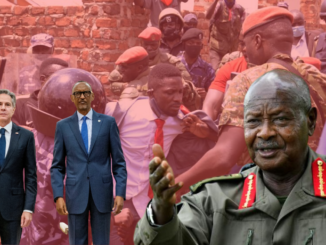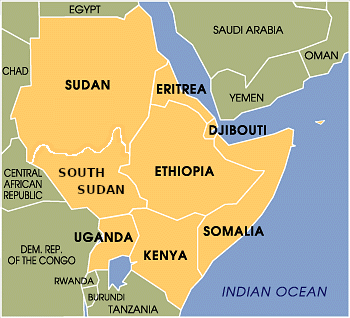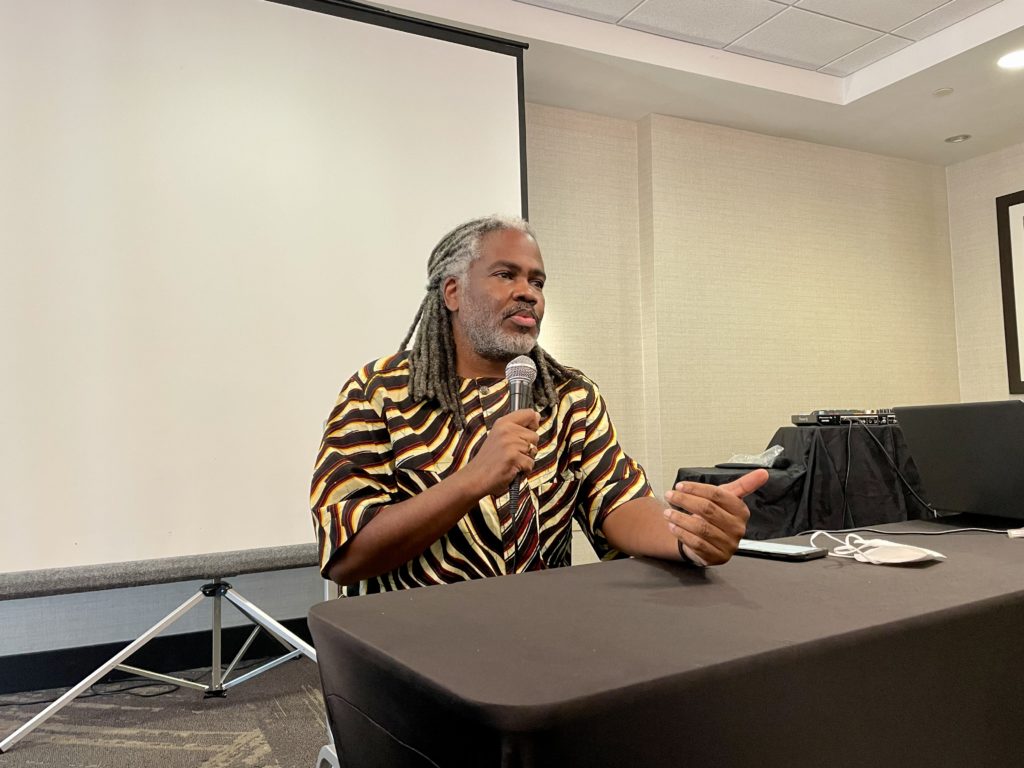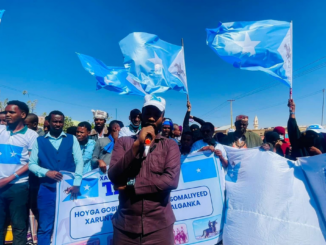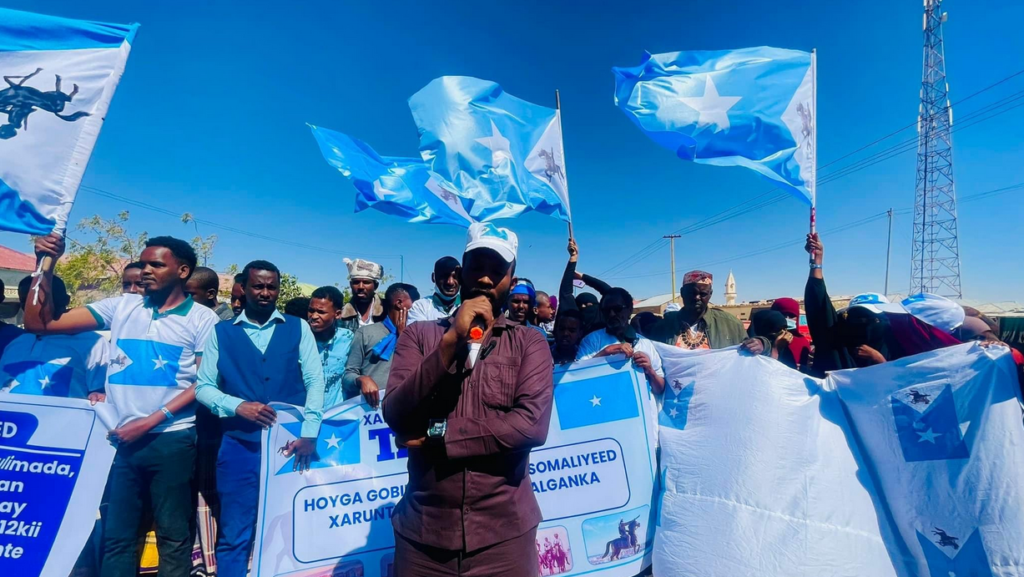
Editor’s Note: This article was originally published in Borkena.
Since December of 2018, the Republic of Sudan has undergone general strikes, mass demonstrations, the forced removal of longtime former President Omar Hassan al-Bashir and the failed formations of several interim administrations.
Hundreds of people have lost their lives due to the repression carried out by the military and its supporters against protests which have been led by the Forces for Freedom and Change (FFC) and its Popular Resistance Committees (PRC).
The FFC was spearheaded by the Sudanese Professional Association (SPA) as well as other organizations. Since December 2018, the alliance which came about as a direct result of the overall economic and political crisis in Sudan, has undergone several realignments involving the military leadership and within its own ranks.
After an extended sit-in outside the Ministry of Defense during the early months of 2019, the top military leadership staged a coup against then President al-Bashir vowing to create the conditions for the realization of a democratic dispensation inside the country which had experienced the rule of the National Congress Party (NCP), an entity formed by the military-turned civilian officials of the government that had remained in power since 1989.
However, despite the promise of reforms, the Transitional Military Council (TMC) led by the Rapid Support Forces (RSF) attacked thousands of pro-democracy activists in Khartoum on June 3, 2019. It was estimated that at least 100 people died that day as 10,000 well-armed troops used live ammunition, teargas and concussion grenades to clear the demonstrators from in front of the military headquarters and the entire streets of the capital of Khartoum.
After the June 3, 2019 massacre in Khartoum, regional states coordinated by the African Union (AU) feverishly negotiated a truce between the FFC and the TMC. By August 2019, a Sovereign Council was created which outlined a 39-month transitional period where the military would serve as chair of the arrangements for the bulk of this time period which ostensibly would result in multi-party elections.
Nonetheless, the Sovereign Council consisting of FFC members and military leaders was dissolved on October 25, 2021. Interim Prime Minister Abdalla Hamdok was placed under house arrest while yet another crackdown on the mass organizations proceeded. Hamdok was briefly brought back into the government after being released from detention. Soon enough, however, Hamdok resigned from the second interim administration accepting his failure to stabilize the political and security situation in Sudan.
Communist Party Announces New Anti-Military Coalition
Just recently in late July, the Sudanese Communist Party (SCP), which had resigned from the FFC on November 7, 2020, citing what it perceived to be the indecisiveness of the alliance as it relates to the continued role of the military within society and government, announced the establishment of another alliance. The SCP has categorically rejected any governance role for the Sudanese Armed Forces within a future democratic administration.
Calling itself the Forces for Radical Change (FRC), the SCP-led alliance consists of various mass organizations and trade unions. The FRC is demanding the immediate establishment of a civilian government which would force the military back to its barracks.
A report published by the Middle East Monitor on July 25, stated that: “According to Sudanese media, the new alliance hopes to bring down the coup authorities to implement radical revolutionary change. SCP Political Secretary Mohamed Mokhtar Al-Khatib said that the FRC rejects ‘the military institution’s interference in politics and rejects any partnership with it.’ The alliance statement stressed the need to take decisions related to all ‘deferred issues’ and resolve them during the transitional period. Al-Khatib added that the FFC will not be part of the new alliance because it adopted a social-political approach ‘that caused the destruction of national resources.’ He claimed that the FFC still believes in an agreement with the military component and ruled out the participation of the Sudanese Revolutionary Front because it is cooperating with the military. The SCP leader did not speak about the National Consensus coalition which is seen as part of the coup.”
This new FRC grouping has called for an end to the economic underdevelopment of Sudan, a citizens-based civilian administration along with the acquisition of genuine independence which would discontinue any reliance on foreign imperialist interests. These events represent a further fracturing of those claiming to represent the democratic movement of the people which erupted during December 2018. At present there is the FFC Executive Office, the National Consensus Forces which appears to want a continued role for the military in the administrative structures of the country and the SCP-led Forces for Radical Change (FRC).
Mass Demonstrations for Democracy are Continuing in Sudan
Two large-scale protests were reported during June and July centered around the capital of Khartoum and its twin city of Omdurman. On June 30, four protesters were reportedly killed by the security forces during demonstrations calling for the reversal of the October 25 coup.
Later, on July 17, another demonstration was met with repression by the military and other security forces. Thousands participated in the protest actions prompting the security forces to utilize teargas and other crowd control weapons designed to disperse the crowds. Activists waved Sudanese flags and barricaded major thoroughfares in various locations in the Khartoum and Omdurman areas. Bridges leading to the cities were cordoned off by the military to prevent others from joining the demonstrations.
After the rejection of the October 25 coup, many of the FFC leaders who held positions in the Sovereign Council have expressed their reluctance to reenter another alliance with the military leadership of General al-Burhan. At the same time, the military regime has maintained its agreements with several armed opposition groupings known as the Sudan Revolutionary Front (SRF), an amalgam of rebel organizations based in Darfur, Blue Nile and South Kordofan states. The SRF has sided with the Sudanese military leadership since al-Burhan has pledged to address their grievances during the putative transitional process.
The SRF played a political role in encouraging the October 25 coup by staging a sit-in Khartoum demanding the dissolution of the Sovereign Council. After the coup, the SRF expressed its support for the latest putsch.
Meanwhile, another alliance of 10 Islamist groupings have put forward a proposal for the establishment of a new regime. This alliance dubbed The Broad Islamic Current consists of members of the banned former ruling National Congress Party (NCP), now known as the Islamic Movement and the State of Law and Development Party of Mohamed Ali al-Jazouli, who is a supporter of the Islamic State (IS) recently released from prison. At the founding of the Broad Islamic Current, supporters chanted slogans against the left organizations and coalitions in Sudan while expressing support for the October 25 coup and the military leadership.
Interestingly enough, the Broad Islamic Current does not include the Popular Congress Party (PCP) in its alliance. The PCP is one of the largest Islamist parties in Sudan founded by Hassan al-Turabi. The PCP grew out of a split between al-Turabi and former NCP leader and President al-Bashir in 1999. The Broad Islamic Current is seeking to take advantage of the political climate which emerged in the aftermath of the October 25 coup.
General al-Burhan delivered an address on July 4 calling once again for dialogue among all political groupings inside the country. He also commented on the role of the military in Sudan even after the holding of democratic elections. The military leader proposed what he called a “Supreme Council of the Armed Forces” which would have an undefined role in the economic and political structures within the country.
The FFC along with the FRC are saying publicly that they are not interested in further talks with the military regime. Noting that all other previous agreements between the FFC and the TMC have been broken by the military and its allies within the now reconfigured Sovereign Council, which is staffed by former rebel leaders, supporters of the rule by the armed forces and Islamist groupings which were formally associated with the government of ousted President al-Bashir.
Political analyst Osman Mirghani wrote during early July in the Sudan Tribune noting: “Simply rejecting al-Burhan speech will be a continuation of the reactive approach that has enabled the military component to always be one step ahead of the civilian forces. If these forces overcome their differences and set a clear charter, they could turn the tables by agreeing on a civilian government that would close the way for any other attempts to obstruct the transitional period and be the starting point for full civil rule after the failure of the partnership formula.”
Obviously, greater unity among the democratic forces would be a tremendous step forward in the process of genuinely transforming Sudan into a people’s state. Nonetheless, without the purging and dismantling of the military apparatus, which is supported tacitly by the United States, the State of Israel and the Gulf monarchies, any transitional process to a just and humane society will remain elusive.
Abayomi Azikiwe is the editor of Pan-African News Wire, an international electronic press service designed to foster intelligent discussion on the affairs of African people throughout the continent and the world.

